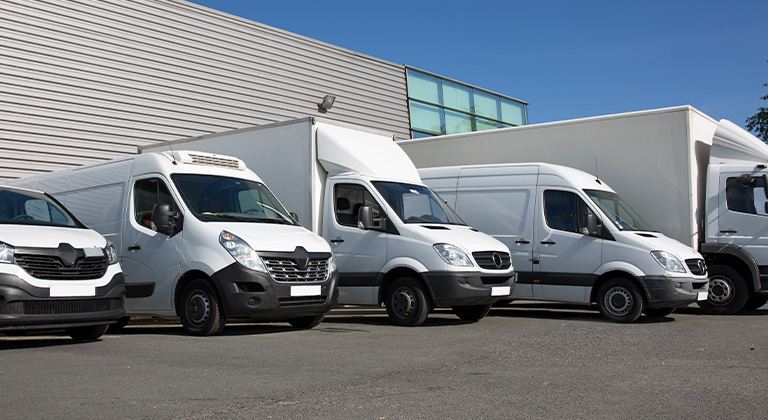What are the Florida commercial vehicle insurance requirements?
If you drive a commercial vehicle in Florida—or employ commercial drivers—it’s important to know auto and commercial vehicle insurance requirements in Florida. Let’s explore some of the basics.
What qualifies as a commercial vehicle in Florida?
According to Florida Statutes, a commercial motor vehicle engaged only in intrastate commerce meets the following criteria:
Is used in some sort of commerce (includes not-for-profit organizations)
Isn’t owned or operated by the government
Uses special fuel or motor fuel on public highways
Has a gross vehicle weight (GVW) of 26,0001 pounds or more
Has three or more axles regardless of weight
Is used in combination of truck and trailer when GVW exceeds 26,001 pounds
Passenger carrying vehicles used for business purposes
Florida’s commercial auto insurance requirements
When registering a intrastate commercial vehicle, you need to prove you’ve met the minimum insurance requirements in Florida. Coverage must be purchased from an insurance provider licensed in Florida. You must maintain these coverages throughout the registration period, even if the vehicle isn’t being used on a regular basis.
If you fail to meet the requirements, your organization could have its driving privilege revoked and license plate surrendered for up to three years.
If you’re an interstate driver, you must adhere to financial responsibility requirements set by the Federal Motor Carrier Safety Administration.
Insurance requirements can be complex, which is why it’s important for you to work with your insurance provider—they’ll understand the needs of your business.
Additional coverage options for Florida commercial vehicles
At Sentry, we offer commercial vehicle insurance options, including:
Commercial auto liability
Physical damage insurance
Non-trucking liability insurance
What do I do if I was involved in a commercial vehicle accident in Florida?
If you were in a commercial vehicle accident, here are some recommended steps to take in the aftermath of an accident:
Make sure your vehicle is parked in a safe location, if possible
Check on the other parties involved if it’s safe to do so
Help the injured to the best of your abilities
Call 911 to report the crash and any injuries
Contact your supervisor or dispatcher
Get the insurance information from other involved parties
Take pictures of the crash from multiple perspectives and get contact information from other parties and witnesses
Get the police report number and contact information for tow companies and others responsible for clean-up
If you drive a commercial vehicle—like a semi—or you employ commercial drivers, explore these recommended safety policies and accident procedures.
Is Florida a no-fault state?
Yes, Florida is a no-fault state. That means the respective insurance providers of any vehicles involved in an accident will likely cover the cost of injuries and damage for their customer—no matter who was at fault.
Related resources
What to do if you’re in an accident with a truck
If you're involved in an accident with a truck or other commercial vehicle, responding appropriately can help keep the involved parties safe—and also help expedite the claim process.
How to file a trucking accident claim
Learn how truck accident claims work—including how they differ from car accidents, and how you can help ensure a smooth process.
How to file a third-party claim
A third-party insurance claim is one you file with someone else’s insurance company when you believe you’re entitled to compensation following an accident.




